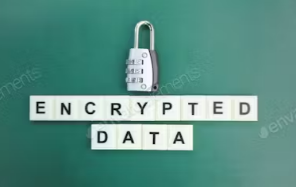Encryption is a method of encoding information in such a way that only authorized parties can access and understand the data. It involves converting plaintext (readable information) into ciphertext (unreadable data) using encryption algorithms and cryptographic keys. The encrypted data can only be decrypted back to its original form by authorized users with the corresponding decryption keys.
Why Do You Need Encryption?
- Data Protection: Encryption helps protect sensitive information such as personal data, financial details, and confidential communications from unauthorized access, theft, or interception.
- Privacy Preservation: Encryption safeguards your privacy by ensuring that only intended recipients can view or access your data, preventing unauthorized individuals, hackers, or surveillance from intercepting your communications or information.
- Security Compliance: Many industries and regulations require the use of encryption to ensure the confidentiality, integrity, and security of data, especially in regulated sectors like healthcare, finance, and government.
- Secure Communication: Encryption secures communication channels, emails, instant messaging, and file transfers, protecting sensitive information from eavesdropping, interception, or tampering during transmission.
- Protection from Cyber Threats: Encryption helps mitigate cyber threats such as data breaches, ransomware attacks, and identity theft by rendering stolen data unreadable and unusable to criminals.
- Secure Transactions: E-commerce transactions, online banking, and digital payments rely on encryption to secure financial details, credit card information, and personal data during online transactions, ensuring the confidentiality and integrity of sensitive information.
- Data Integrity: Encryption not only protects data from unauthorized access but also ensures data integrity by detecting any modifications, alterations, or unauthorized changes to the encrypted information.
- Cloud Security: Encryption secures data stored in the cloud, preventing unauthorized access to sensitive files, documents, and backups, and providing an additional layer of security for data stored in cloud services.
- Compliance with Privacy Regulations: Encryption is a crucial component of compliance with privacy regulations like GDPR, HIPAA, or CCPA, which mandate the protection of personal data and sensitive information through encryption measures.
- Peace of Mind: By using encryption to safeguard your data and communications, you can have peace of mind knowing that your information is protected, confidential, and secure from unauthorized access or malicious activities.
In a digital world where cybersecurity threats are prevalent, encryption plays a vital role in ensuring the security, privacy, and integrity of sensitive data, communications, and transactions. By implementing encryption measures, individuals, organizations, and businesses can proactively protect their information and mitigate risks associated with cyber threats, data breaches, and unauthorized access.
